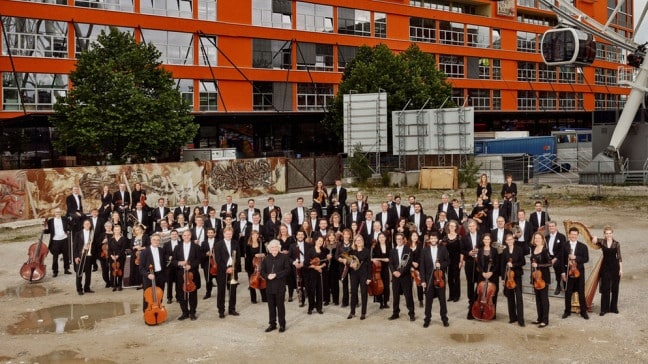Mendelssohn Prize goes to … German Foreign Minister. Er, why?
UncategorizedSometimes being German is all it takes.
The award of the International Mendelssohn Prize in Leipzig to Hans-Dietrich Gesncher, long-serving foreign minister and middle-road politician, is one of those sometimes.
What has Genscher done to exemplify the values and creative exhilaration of Felix Mendelssohn?

Here’s the citation (auf Deutsch):
„Seinem Motto: ‘… verantwortliche Politik muss der Freiheit und der Würde jedes einzelnen Menschen dienen’, ist Hans-Dietrich Genscher immer treu geblieben. Stets hat er sich für eine intensive Zusammenarbeit in Europa, für ein ganzheitliches, global verantwortungsvolles Denken eingesetzt und stets hat er diese Haltung selbst aktiv vertreten. Ein solches Denken und Handeln entspricht ganz dem aufklärerischen Geiste Felix Mendelssohn Bartholdys, des großen Europäers und Mittlers zwischen den Religionen, der sich immer auch in besonderer Weise den Menschen zugewandt hat, nicht nur mit seiner Musik, sondern auch im gesellschaftlichen Leben. Mit dem Politiker und Humanisten Hans-Dietrich Genscher wird eine Persönlichkeit gewürdigt, die sehr eng mit den Ereignissen um die Friedliche Revolution verbunden ist, die vor 25 Jahren die beiden deutschen Staaten wieder angenähert und durch den Beitritt der Länder im Osten der Republik zur Wiedervereinigung Deutschlands geführt hat. In diesem Prozess ist seine Zuwendung allen Menschen gegenüber eindrucksvoll deutlich geworden.”
He shares the prize with the Gewandhaus Quartet.





Genscher basically bought the GDR for the price of a well-situated London town house, 14 million Deutschmarks at the time. It also ensured Helmut Kohl’s re-election…
Err, if being German is all it takes, why don’t I get it?
Why? I believe for clues we should not look into Genscher’s citizenship, because there are about 80 million German citizens. We’ll do better by looking at the website of the Felix Mendelssohn-Bartholdy Foundation:
“The Leipzig Mendelssohn Award has been conferred annually since 2007 and is awarded in three categories: music, visual arts and social commitment. These categories recall Mendelssohn’s creative diversity, his distinctive, diverse talents and his untiring efforts on behalf of social progress.
The award’s namesake, Felix Mendelssohn, clearly exemplifies high aesthetic and political values, not only as a musician and artist but in his social commitment as well.”
http://www.mendelssohn-preis.de/eng/der-mendelssohn-preis.html
Er, why?
Er, it is explained in the quoted text from the Felix Mendelssohn-Bartholdy Foundation…
Genscher was actually a pretty good foreign minister in turbulent and difficult times, especially the period around the fall of the wall. Back then, he was often called Genschman:599
https://encrypted-tbn1.gstatic.com/images?q=tbn:ANd9GcTZm_hKJzFMUnks7Ap2ScQ4gJtq_-On2843sNwQlflOxAdQVuYvbw
Genscher, seen in the most ideal light, might better be compared to Felix’s father Moses – a philosopher who worked to improve Jewish and Christian relations and who devoted his life to creating a more civil society. In his philosophical writings, Moses stressed the themes of candidness and tolerance. Some consider him the father of Jewish humanism.
Genscher’s worked for a unified Europe under EU treaties, and he stressed close and open relations even with the East Block, thus following in Moses’s philosophy of candidness and tolerance. Genscher criticized Pope Benedict for too often offending non-Christians. He was the leader of the FDP, a small German political party that stressed liberalism, especially concerning individual rights, and to a considerable degree, open markets and free trade.
By comparison, Felix was more a song bird, but he still stands for a symbol of tolerance in Germany, in part because of his Jewish heritage and his family’s association with humanism.
There were things that bothered me about Genscher, especially when he was closely associated with Helmut Kohl in a CDU/FDP coalition through most of the 80s and 90s, but that is another story…